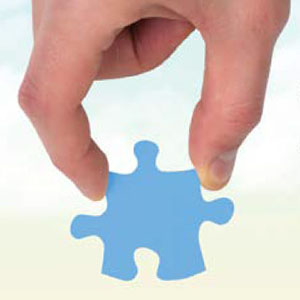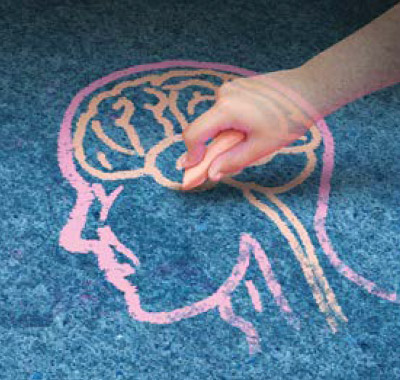Autism, also known as autism spectrum disorder or ASD, is a lifelong developmental condition that is characterised by persistent problems in social communication and interaction, along with restricted and repetitive patterns of behaviour, interests or activities.
It’s called a ‘spectrum’ because people with it may have challenges/problems that run from mild to severe, with different levels of ability and/or disability. Because of this, each patient is unique and requires different levels of support.
Challenging Behaviour of People with ASD
What are the behaviours that distinguishes a person with ASD from his or her “typical” peers? They may vary according to the severity of a person’s autism and their age, but there are core issues that affect most people with ASD.
Common ASD Behavioural Challenges
Social & communication problems
Does not develop typically with age, may be considered socially inappropriate or strange. Commonly have difficulties in speech & understanding.
Obsession, repetitive behaviour and restricted interests
Wanting to do the same thing over and over again and not comfortable with change.
Mood instability
Meltdowns and tantrums, even over trivial issues or can occur spontaneously for no apparent reason.
Sensory problems
Oversensitive to sensory input such as common noises (e.g. vacuum cleaner) or hyposensitive – e.g. no reaction even to scary noises such as a dog barking close by.
Daily activities
A combination of lack of motor skills and/or cognitive (mental) disability may make daily tasks (e.g. dressing, feeding) difficult.
Sleeping problems
Disruption in circadian rhythms and melatonin production could lead to sleep problems and also sensitivity to light and temperature.
Psychiatric problems
Attention deficit hypersensitivity disorder (ADHD), anxiety, etc., that may occur along with autism.
Causes
Scientists are still unclear of what causes the disability. It is most likely that causation is multi-factorial, a combination of different factors (i.e. problems during pregnancy, genetics or environmental). For the most part, science has yet to determine the exact cause.
These are some misconceptions surrounding the cause of ASD, which have insufficient evidence or which are NOT true and have been proven wrong through scientific consensus:
- Measles, mumps & rubella (MMR) vaccine
- A person’s upbringing or social condition
- Diet, such as eating gluten or dairy products
Prevalence
There is no local study on ASD prevalence in Malaysia. Many studies, including in Asia, have shown the prevalence to be approximately 1 percent (1 in 100).
What is MCHAT?
It is an autism screening tool, which consists of 23 questions reported by parents for children 16 to 30 months of age. The test will determine whether or not a more thorough assessment for signs of ASD or developmental delays is required.
Even if your child has been positively screened for ASD, it doesn’t mean he or she will be diagnosed with the disorder. But, if the doctor suspects ASD, a proper assessment and follow up tests will be conducted.
Symptoms & Signs
It’s important to note that some children with ASD may not show any symptoms in the first year of life. But if your child shows any of these red flags or a combination of them, consult a doctor.
Red Flags Behaviours
- No babbling or cooing by 12 months.
- No gestures (finger point, wave, grasp) by 12 months.
- No single words by 16 months.
- No 2 word phrases by 24 months.
- Any loss of language skill at any age.
Treatment
Early intensive behavioural intervention involves a child’s entire family and working closely with a team of professionals. This isn’t always possible for many families because of the practical, emotional and financial commitments necessary.
Additionally, there are many different types of autism interventions, treatments and therapies to consider. The focus of any intervention should be the development of your child’s:
- Communication, social and interaction skills
- Imaginative play, motor and mobility skills
- Cognitive and academic skills
- Everyday tasks (e.g. toilet-training, feeding)
Because parents with ASD children play such a crucial role in supporting and enhancing their child’s skills, it’s important that they too are educated and trained on how to communicate with their child effectively (e.g. call out their name, use simple language, accompanying words with gestures).
Connecting with other NGOs (Non-Governmental Organisations), parents, individuals or ASD support groups can help parents gain more information about ASD, get advice on treatment and other related issues. These groups may also offer parents much needed emotional support. My colleague, Datuk Dr Zulkifli, will discuss in further detail on where you can go for help, so make sure you stay tuned. Read here: A Journey Through Autism: Helping Families with Autistic Children.
An educational contribution by Malaysian Paediatric Association.










Comments